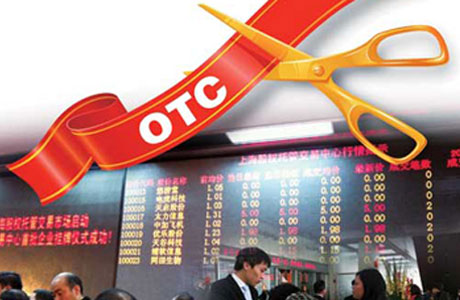 By Ujjwal Dahuja
By Ujjwal Dahuja
“This unlimited borrowing in the OTC derivatives market – like the unlimited borrowing on securities that contributed to the Great Depression – may pose grave dangers to our economy.”
When Brooksley Born, former chairperson of the Commodity Futures Trading Commission (CFTC), said the above lines, she was trying to communicate to former Federal Reserve chairman Alan Greenspan, the grave dangers that the seven hundred trillion dollar market of over the counter derivatives (OTC) posed to the stability of the financial system. Greenspan, Larry Summers and Robert Rubin, not only dismissed Brooksley’s initiative to regulate the OTC derivatives market, but also passed the Commodity Futures Modernization Act (CFMA) to prevent legislation that might even attempt this regulation.
In my view, however, Brooksley’s attempt to regulate the OTC derivatives market, which has today taken the form of Over-the-Counter Derivatives Markets Act of 2009 (an act whose status has been reported as ‘died’ in the Congress) attempt at regulation that has the potential to spur better behavior and diminish the probability of further slide towards dangerous excesses. To put the need of this legislation in perspective, it is important to consider the very nature of the OTC derivatives market. In the OTC derivatives market, contracts are executed between two parties in unregulated spheres to carry out different risk management functions. These exchanges are executed such that they never appear in the public domain and thus no one besides the involved parties has information about the exchange. This results in lack of transparency in the system because it allows involved parties to withhold material information from third party participants. In turn, this also results in high price volatility and extensive malpractice because creditors have no way of accurately determining a firm’s positions in the market. In addition, the OTC derivative market also creates provisions for excessive leverage—sometimes in multiples of the firm’s assets. This not only leads to opaque risks in financial markets but also leads to insufficient prudential controls.
Long Term Capital Management and Enron, two firms that made use of this systemic shortcoming in OTC derivatives, in fact, leveraged themselves to exorbitant levels and raised money from creditors who had very little idea of the OTC derivative positions of these companies. This led to massive fraud in both the companies which made billions of dollars by cheating the system. In the light of these systemic shortcomings, regulation in the OTC derivative market has become necessary to ensure fair and equal access. In this regard, the Over-the-Counter Derivatives Markets Act of 2009 not only establishes the framework for comprehensive regulation of OTC derivatives but also ensures the clearing of these derivative transactions.
In addition, this legislation also places limits on leverage ratios and demands that regulation of trading facilities such as credit default swaps be done to restrict volatility levels in financial markets. In terms of oversight, this legislation brings both the SEC and the CFTC to monitor the positions held by firms in derivative markets and creates provisions for the two regulatory agencies to have full disclosure of the firms’ positions. This not only promotes transparency between regulatory agencies but also gives them the ability to monitor leverage ratios of firms. In addition, this legislation also covers the very loopholes exploited by Enron and Long Term Capital Management by creating provisions to regulate electronic trading facilities. All in all, this legislation provides a comprehensive way of regulating the otherwise unregulated sphere of OTC derivative markets because it covers the “entire market place without exception”.
Having said that, it is not that this legislation has no drawbacks. First and foremost, this legislation goes against the free market notion adopted by Alan Greenspan, that markets are already self regulated and do not need legislative watchdogs to discipline them. Greenspan’s views arise from his belief that regulation reduces market value of financial instruments and therefore implementing this act would mean reduction in market value of the financial instruments of the five biggest investment-banking firms. However, in my view, this piece of legislation must be enacted because transparency has been the defining characteristic of derivative trading in the United States and regulating the OTC derivative market would not only bring consistency in transparency of the markets as a whole, but would also restore investor confidence in US derivative markets. Most importantly, however, this legislation could help avert crises like that of 2008 wherein deregulation of derivative markets led to excessive risk taking and consequently, instability in financial markets.

































